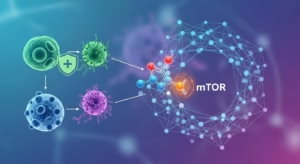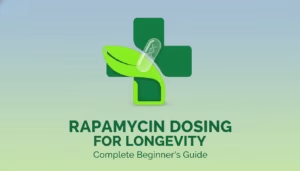Rapamycin Healthy Lifespan: Insights from Leading Aging Researchers on mTOR, Longevity, and Anti-Aging Benefits

Rapamycin has been researched by many doctors and academicians, and numerous articles have been published about its benefits. As we know, in addition to supporting a long and healthy life, it is also anti-cancer, making it a very valuable compound. Now let’s look at what a few leading researchers have to say about Rapamycin healthy lifespan:
Dr. David Sinclair (Harvard University Professor, Aging Researcher)
Dr. David Sinclair is a well-known researcher in the field of aging and has extensively studied compounds that might extend lifespan. He has mentioned rapamycin as one of the key substances in aging research, alongside other compounds like NAD+ precursors and resveratrol. Sinclair’s work revolves around understanding the biology of aging, and he has highlighted rapamycin’s role in promoting longevity via autophagy, mTOR inhibition, and potential Rapamycin for lifespan extension.
What Dr. Sinclair said about rapamycin:
In his 2019 book “Lifespan: Why We Age – and Why We Don’t Have To”, Sinclair discusses how mTOR (the target of rapamycin) is a key protein involved in regulating cell growth, metabolism, and aging.
- Sinclair notes that inhibiting mTOR, particularly through drugs like rapamycin, can increase lifespan in various organisms, from yeast to mice.
- While rapamycin has shown promising results in animal models, it remains a subject of ongoing research, especially regarding its potential risks and benefits for humans. Sinclair is cautious about recommending rapamycin for humans without further studies but recognizes its importance in Rapamycin aging research.
“Rapamycin may very well be the most potent longevity drug discovered to date… It has shown a remarkable ability to extend life in various animals. If it works similarly in humans, it could have a profound impact on aging and age-related diseases.”
— Dr. David Sinclair, Lifespan (2019)
Dr. Brian Kennedy (Biogerontologist, Director of the Centre for Healthy Ageing)
Dr. Brian Kennedy has studied rapamycin extensively in the context of lifespan extension and age-related diseases. As an advocate for mTOR inhibition and aging, Dr. Kennedy has been involved in studies showing that rapamycin can extend lifespan in mice.
What Dr. Kennedy said about rapamycin:
Dr. Kennedy has stated that while the potential for rapamycin to extend life in humans is exciting, more evidence is needed. He highlights its impact on autophagy and its ability to prevent cellular damage.
“Rapamycin and other mTOR inhibitors hold great promise as tools for extending lifespan and promoting healthspan. However, we still have a lot to learn about their long-term safety and effectiveness in humans.”
— Dr. Brian Kennedy, Interview, 2016
Dr. James L. Kirkland (Mayo Clinic, Aging and Longevity Researcher)
Dr. James L. Kirkland is a prominent researcher in aging and regenerative medicine. He has conducted research on senescence (aging of cells) and the potential for rapamycin and other compounds to target senescent cells, supporting Rapamycin healthy lifespan.
What Dr. Kirkland said about rapamycin:
Dr. Kirkland emphasizes rapamycin as one of the most promising anti-aging therapies. He notes that mTOR inhibition via rapamycin can reverse signs of aging in various organs and extend healthspan in older organisms.
“Rapamycin has shown great promise in slowing aging in mice and could eventually be used to treat age-related diseases in humans. It targets the mTOR pathway, which is central to aging and longevity.”
— Dr. James Kirkland, 2018
Dr. David Gems (University College London, Biogerontologist)
Dr. David Gems studies genetic pathways involved in aging, including mTOR and rapamycin’s effects. His research focuses on how drugs like rapamycin can extend healthy lifespan and delay age-related diseases.
What Dr. Gems said about rapamycin:
“Rapamycin holds real promise as a treatment to delay aging and age-related diseases. However, much more research is needed to fully understand its potential and risks in humans.”
— Dr. David Gems, 2016
Dr. Nir Barzilai (Albert Einstein College of Medicine, Aging Researcher)
Dr. Nir Barzilai is involved in studies aimed at extending healthy lifespan. He has highlighted rapamycin’s effects on autophagy and mTOR inhibition as promising for promoting healthy aging.
“Rapamycin is one of the most promising compounds in aging research. It is showing impressive effects in preclinical models, but we need more research to confirm its effects in humans and determine its safety for long-term use.”
— Dr. Nir Barzilai, 2017




